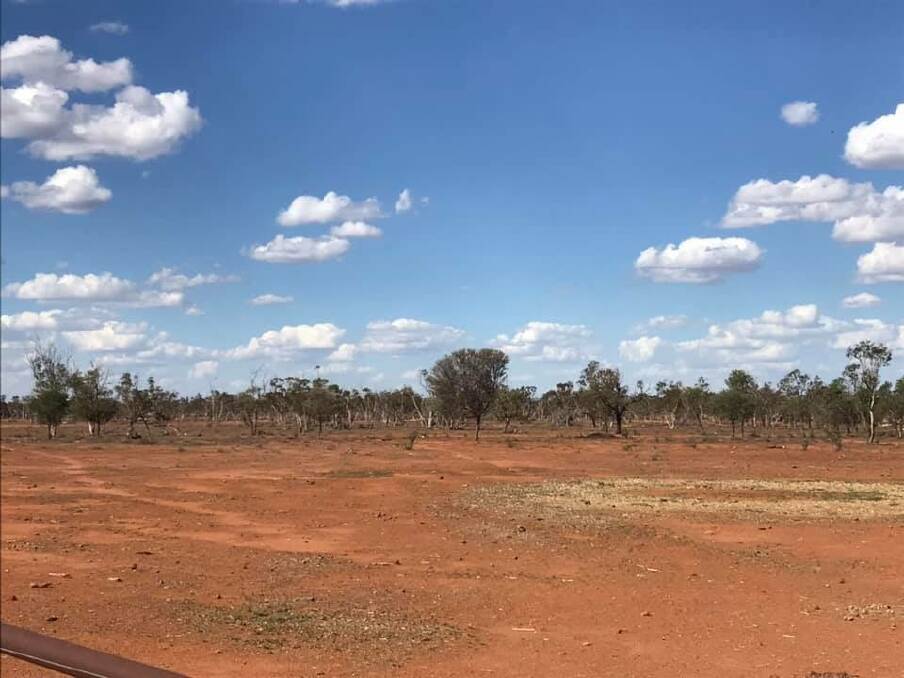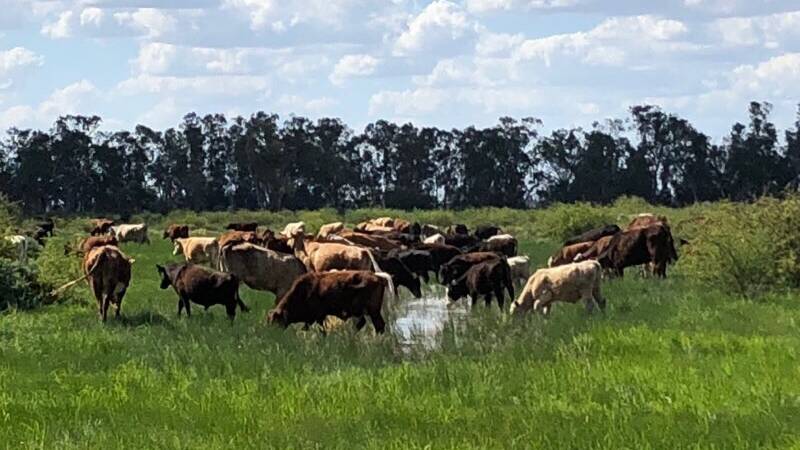Farmers from the Hunter, and across NSW, have thrown their support behind the Swain family who say their cattle will be seized due to a permit issue with a state government department.
Subscribe now for unlimited access.
or signup to continue reading
They expressed their concerns on social media after John and Rolanda Swain received a final notice from North West Local Land Services on Wednesday, which gave them 48 hours to remove their 500 cattle from Moree.
The Swain’s have had Local Land Service walking and destination permits for the past 14 months, which has allowed them to walk their cattle on travelling stock routes.
Their last permit, which ran out on November 2, was a destination permit to Moree. They expected to be given another destination permit to a different location, but their request was denied.
Mrs Swain said the LLS told them their cattle had to be trucked out of the area.
With more than 100 heavily pregnant cows in the herd, and others with young calves, she said trucking the cattle was irresponsible and would put their welfare at risk.
A spokeswoman for Primary Industries Minister Niall Blair said destination permit holders had to remove their animals from the route once they reached the recorded destination.
She said it was up to the livestock owner or manager to decide how the animals were removed from the route.
“It’s important to note that when destination only permits are provided, LLS does not specify how the stock are removed from the travelling stock routes,” the spokeswoman said.
Local Land Services are working closely with those associated with the stock to achieve an optimal outcome and any operational matters should be referred directly to LLS.
Farmers, and supporters of the One Day Closer to Rain Facebook page – started by Upper Hunter farmer Cassandra McLaren, were outraged.
“Farmers and supporters alike are flabbergasted that our droving farmers are still having issues with red tape and this is putting unnecessary stress and pressure on them,” Ms McLaren said.
The stress and pressure on them and also on other farmers – the ones who are on the stock routes and the ones who don’t know what their next move is going to be after realising that maybe there is no option for them. It comes across that they are not willing to help farmers. They should be trying to bend over backwards to help sort them out, but at every turn there is just another road blockage … Nothing is easy for them.
Page members contacted New England MP, and drought envoy, Barnaby Joyce to express their concerns.
Mr Joyce weighed into the dilemma and wrote in an email to one member that he had spoken with the farmers, and Mr Blair’s office, to see if a compromise could be struck.
He understood a movement plan was being negotiated and said the welfare of the animals was being taken into account.

The Swain’s cannot legally walk the cattle away from Moree without a permit.
Mrs Swain said she had contacted the LLS earlier this week to try to find out where the cattle would be taken, who would care for them, and how they could get them back.
She estimated it would cost about $2500 a day to feed them and she had not been told who was going to pay that bill.
“You can’t go loading cattle on a truck that are about to have a calf, it’s not right, it’s an animal welfare issue,” Mrs Swain said.
“We won’t be signing any paperwork to truck them, we won’t do it because it’s against animal welfare.”
Mrs Swain said the stressful situation was the last thing they needed after enduring six years of drought. She said their farm at Walgett was still a barren dust bowl.
If the cattle were put on a truck the young calves would have to be taken away their mothers.
Mrs Swain said there was no guarantee the cows would accept them once they arrived back in Walgett.
You can’t load the cows and calves together because the little calves will get stepped on. You have to take the calves off their cows and put them in a separate pen and then truck them on separate trucks and hope that when they get home that the cows take them back.
- Rolanda Swain
“You don’t touch cows with little calves, you’re supposed to leave them alone.”

Mrs Swain said the LLS had been extremely helpful until the end of October when they refused to issue a new permit.
She said discussions with the department failed early in November and they had to engage a solicitor to negotiate on their behalf. That also failed to resolve the issue.
The spokeswoman said an assessment of travelling stock routes across the North West region in late October had found the feed was patchy and the road was unsuitable for walking.
She said travelling stock routes were not immune to the effects of drought and needed time to recover.


